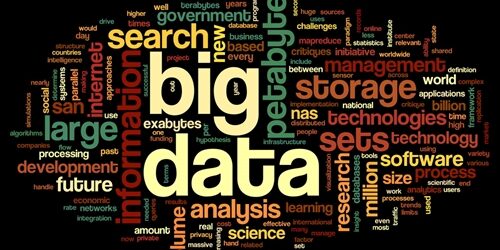Big data and data analytics aren’t often associated with human resources, but business experts are confident that there’s a blooming opportunity there. Forbes reported that big data isn’t just for corporations with billions of dollars in annual revenue. There’s increasingly a place for the practice in small businesses.
“…The evidence tells us that when it does its job correctly, employees stay longer, work happier and ultimately help a business recoup the cost of hiring and training faster and more assuredly,” as reported in Mashable.
These days, most documents that come through a recruiter’s office are ultimately stored digitally. Resumes, applications and business cards for creative careers are easily scanned and saved, if they aren’t sent in a digital format from the beginning. Additionally, recruiting no longer requires sorting through paper files and a Rolodex to reach out to a professional network of marketing directors because it’s more efficient and effective to search online profiles. LinkedIn, Twitter and Facebook can give recruiters more insight into a potential hire than traditional search methods. There are also new opportunities for candidates to prove their skill sets using tests and games during the interview process because results are easily documented and stored for review.
Choosing big data as a starting point for recruitment removes a certain degree of human bias, according to The Guardian. You can show a system what to search for based on your settings. It’s possible to document what makes your best workers superior then arrange for the system to seek out similar applicants, ensuring each hire is meaningful.
The technology’s potential
Using keywords and algorithms to process the data, a system can sort applicants into smaller subsets based on the positions they are fit for. A big data system can isolate applicants who might have been overlooked by recruiters, but who bring a lot to the table.
Companies have been collecting information from applicants such as demographics, job history, performance, references and educational background. However, big data will allow businesses to put more focus on talent analytics, a fact that Forbes called the biggest big data opportunity in the business world. Big data will allow for more complex statistics including accident claims, customer retention, expected leadership and talent gaps, sales performance, employee retention, loss analysis and a candidate pipeline.
“If we can apply science to improving the selection, management, and alignment of people, the returns can be tremendous,” according to Forbes.
What does the shift mean for marketing recruiters?
With the introduction of big data to the recruiting process, HR representatives may have adjustments to make. While the computer systems handle collecting and quantifying information, companies still need a human to drive the hiring process and make sense of all the data.
According to Forbes, recruiters of the near future must be skilled with problem solving, visualization, data analysis and statistics. Additionally, these people should have the tools to analyze both internal and external variables. Mashable determined that the most successful HR manager in this new recruiting system will bring an entrepreneurial spirit to hiring process.
The Guardian determined the three main functions of HR managers are keeping companies happy, healthy and wealthy. The source sees potential for further improvement of the human resource role in companies. Once a desirable group of employees has been established by the recruiting team, big data can help monitor health and well-being. While that’s just an example, the fact of the matter is that technology makes it possible to take, track and analyze measurements of all types. One of the most vital contributions of data to HR is the ability to isolate qualities that make a workforce its best.








